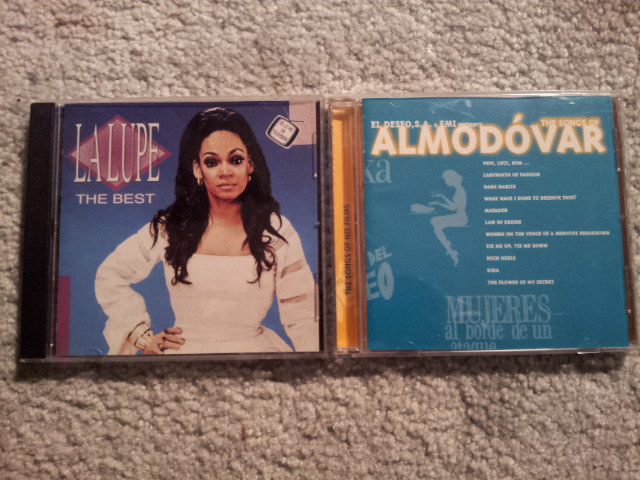Appreciating the unique singer La Lupe

I recently listened to a great program “La Lupe: queen of Latin soul” about the black Cuban singer La Lupe, who died in 1992 (born in 1936) well before I was even aware of her existence.
(I also then found information on a film about La Lupe).
First encounter
I still remember the exact moment I first heard her electrifying singing, and remember looking her up to find more music sung by her. It was sometime around the year 2003.
It was during the final credits of the old 1988 film “Women on the Verge of a Nervous Breakdown” by Pedro Almodóvar. It was a quiet evening alone as I was watching it on DVD in part because I was taking a course on Spanish, finally having decided to learn the language for real after having been exposed to it a lot thanks to Latin ballroom dancing and salsa and tango, listening to a lot of the music.
A strident voice rang out at me from the TV screen. I almost want to say “harsh”, but the unique quality of the voice and the singing were so compelling that I don’t want to use the word “harsh”. This voice came out during the singing of a bolero, the musical genre that I love that usually involves a more smooth kind of voice and delivery. So it was really unusual being captivated by this amazing performance that played up the sense of loss and betrayal that were certainly in the lyrics.
It wasn’t just that the emotional directness and yet control of the singing that captivated. I was also really pleased that I could hear every word, even as a beginning student of Spanish. This was a singer with impeccable articulation that could make a song seem as though it were spoken, telling a story. When she sang, it was the complete package: drama, phrasing, silence, a cold stare or a haughty laugh. It was not just notes or words. It was a performance.
The song is so raw that I can’t really listen to it very often, but here it is (as linked from the program I just mentioned). I’m talking about “Puro Teatro”, of course. (Here’s an English translation of the lyrics.)
Finding more of her music
I had no idea who La Lupe was at the time when hearing her sing in the film. I managed to order an Almodóvar soundtrack CD that included her “Puro Teatro”, got her name, then looked her up. Eventually I found more songs by her, buying a CD of just her music. Of course, now with YouTube, it is easy to find anything by anybody. But there was a time when it was much harder to find music.
The NPR program has embedded YouTube videos of several of her performances. She was fantastic in all kinds of music, ranging from really fast dance music to more moderate salsa or cha cha or slower boleros. She also sang, in heavily accented English, some songs in the English languages.
Since I am such a fan of slow boleros, here is “Que te pedí”:
About La Lupe
I tend not to know a lot about the performers of music I have listened to, because I tend not to read music programs or the like. I did appreciate listening to this NPR program, because I hadn’t realized many unique things about La Lupe.
She was really revolutionary back in the day: in the 1950s in Cuba, then after leaving Cuba, in the 1960s and 1970s. I had no idea she dated from way back. Not only was she a black Cuban who made it, but also as a woman she was controversial for her sensual presence and musical delivery (which included growls, gasps, sniffs, sighs, orgasmic moans, and a kind of maniacal laugh; you can hear it for yourself, it’s still kind of shockingly direct for today I think). She was completely uninhibited. That’s why I was surprised she was operating in the 1950s. I would have thought, OK, 1980s.
Conclusion
It was nice for me to have the opportunity to learn something about an amazing singer who has long since gone, and I hope people continue appreciating the quality of her art.
